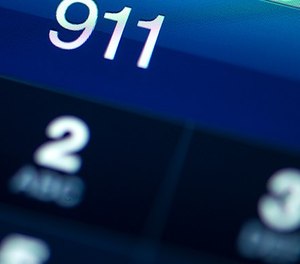
Each Athens-Clarke Alternative Response Team will include an EMT, a licensed clinician and a peer specialist
Stephanie Allen
Athens Banner-Herald, Ga.
ATHENS, Ga. — The Athens-Clarke Commission has approved a new team of mental health professionals to respond to non-emergency 911 calls.
The three-person Alternative Response Team will include a medical professional such as an EMT, a licensed clinician and a peer specialist. It will be funded with $276,800 from the American Rescue Plan .
The Alternative Response Team is described as a "civilian community response team" and will be dispatched for "non‐emergency behavioral events." The team will be operated by Advantage Behavioral Health Systems, a local mental health organization.
Dr. Shannon Kelly, chief clinical officer at Advantage, presented the program to commissioners in September.
The team is similar to another response team in Athens known as the Crisis Intervention Response Team, which responds to mental health-related calls. The Athens-Clarke County Police Department has three such crisis teams, consisting of a sworn officer and a licensed mental health clinician provided by Advantage.
The Alternative Response Team will not include sworn officers and will only respond to less-dangerous calls.
"The intent of this program was to establish a collaboration between Advantage and ACC PD to develop an alternative response team that would reduce the need for law enforcement presence for non-emergency police calls," Kelly said.
If a 911 call fits the right criteria, the Alternative Response Team will be dispatched. Such calls could include a suicidal person who has asked for help, a welfare check or providing assistance such as resource referrals or information about necessities like food and shelter.
The team will not respond to calls concerning crimes, if someone has a weapon, medical emergencies or if something suggests the team would be in danger.
Kelly outlined three goals for the program: to reduce law enforcement presence in low risk, behavioral calls; to increase de-escalation and engagement in certain communities and to provide peer-led support which could help reduce the number of behavioral-health calls.
"The plan was to start conservatively with a pilot with a lot of attention to safety," Kelly said.
The pilot program would last a year, to collect data and make revisions as needed. Starting out, the team would work Monday-Friday from 10 a.m. to 6 p.m., according to Kelly.
Before the team hits the streets, there will be a two-week trial period where 911 dispatchers will practice determining which calls are appropriate for the team. Advantage will provide feedback on the trials and once Advantage gives final approval, dispatchers will begin referring calls to the Alternative Response Team.
If the team is successful, it could be expanded, Kelly explained: "The plan would be to expand this if we find that it is an effective solution for non-emergent behavioral health calls."
___
(c)2021 the Athens Banner-Herald (Athens, Ga.)
McClatchy-Tribune News Service
Copyright © 2026 EmsGrantsHelp.com. All rights reserved.
